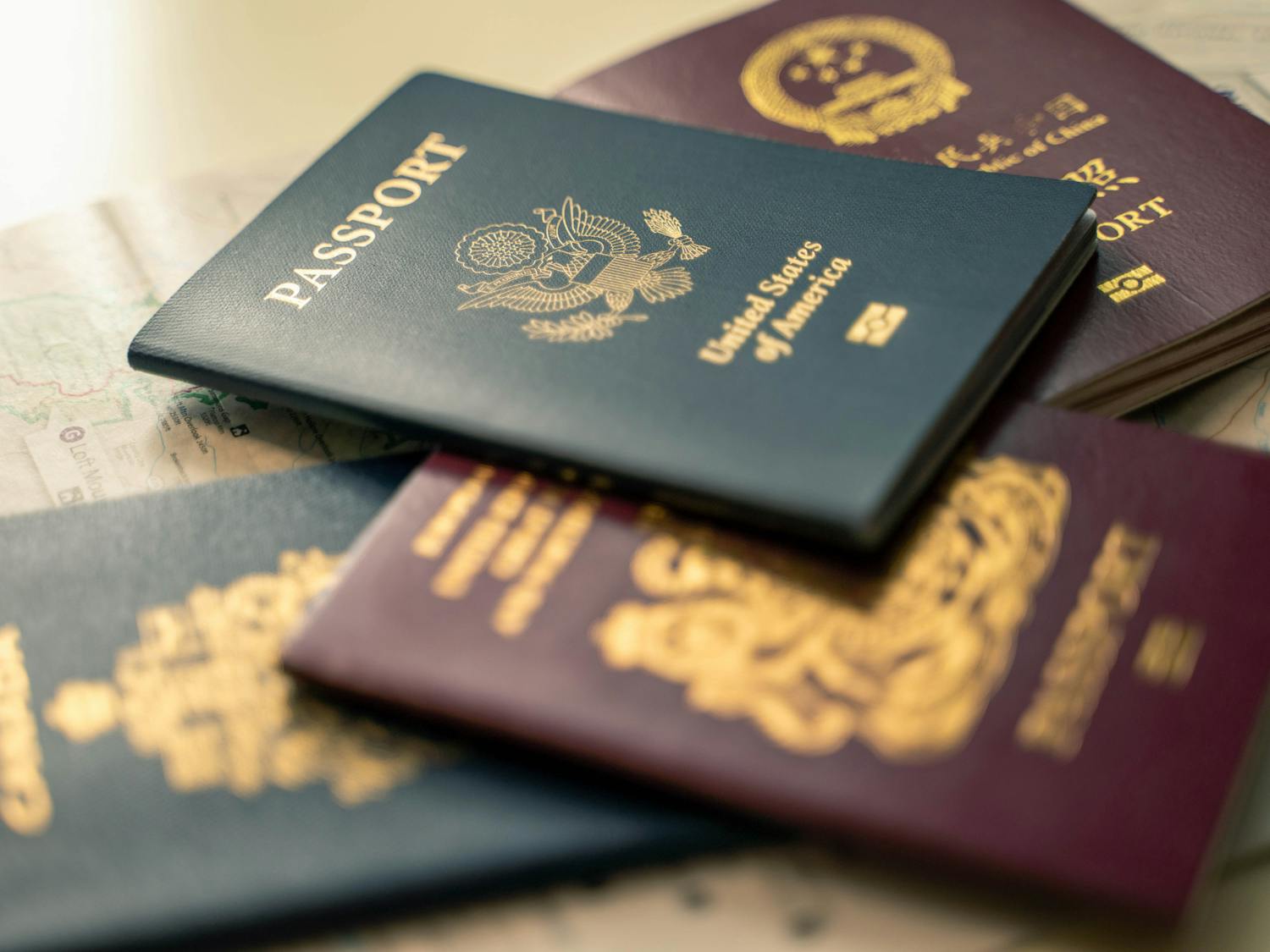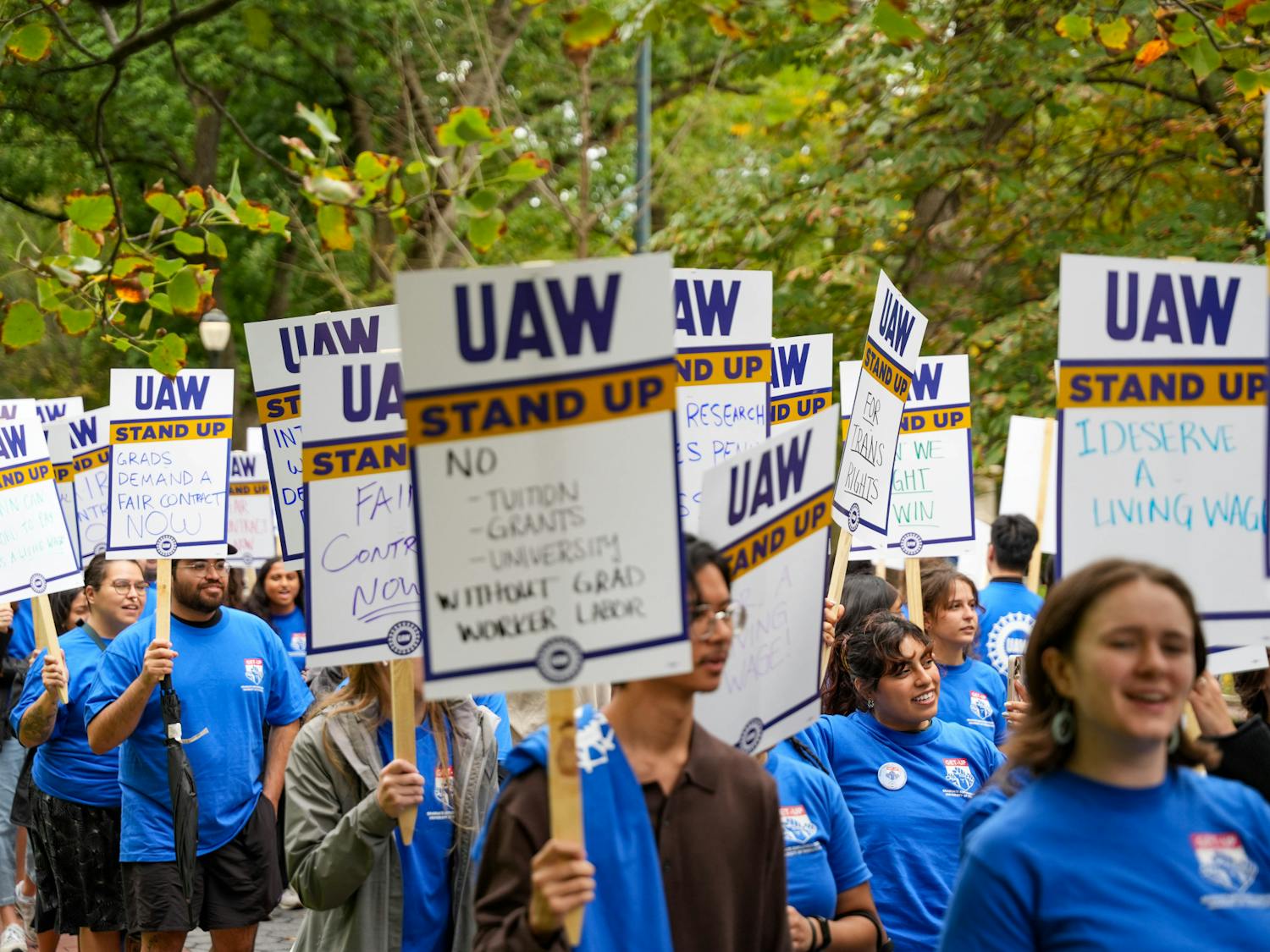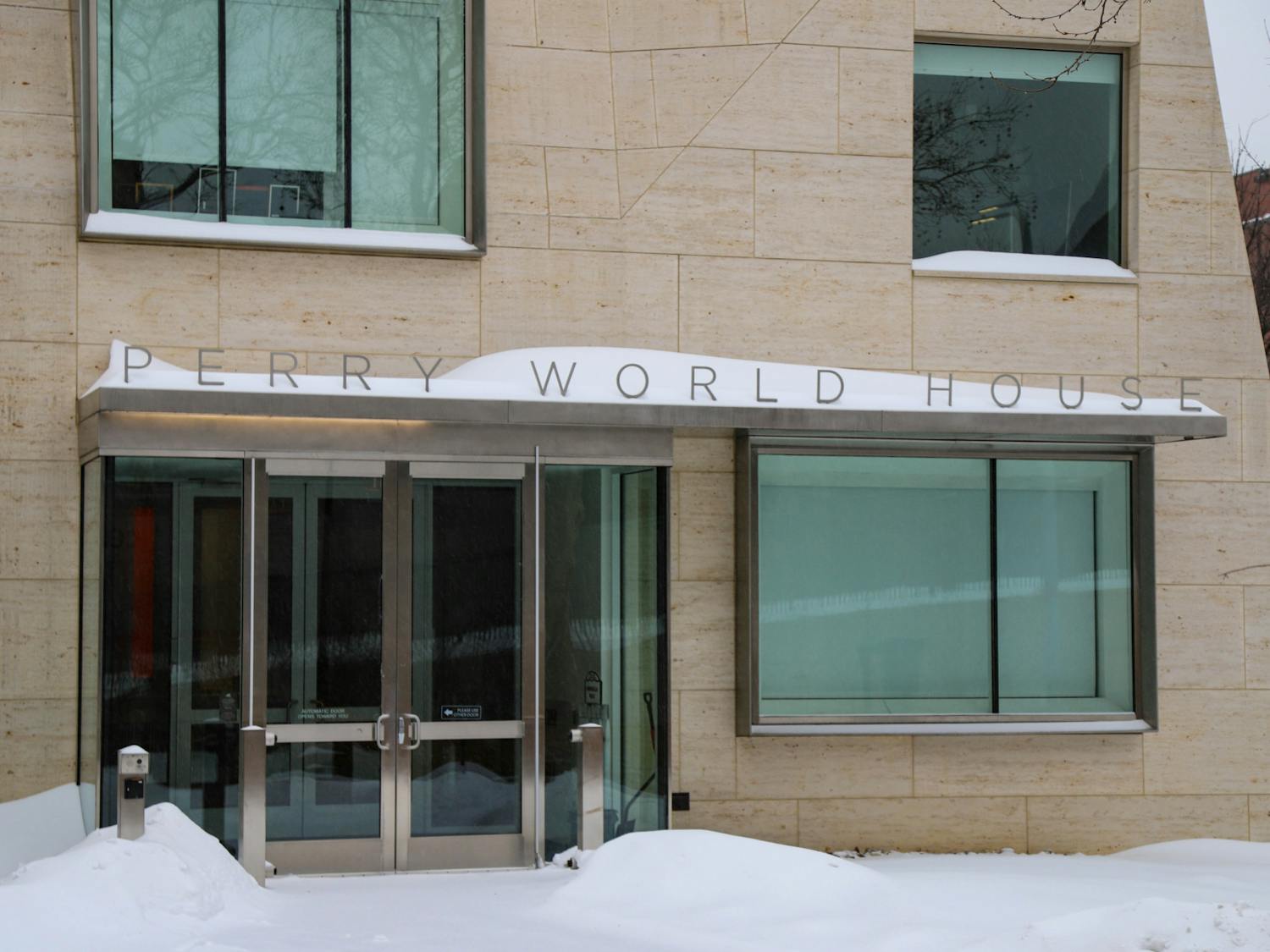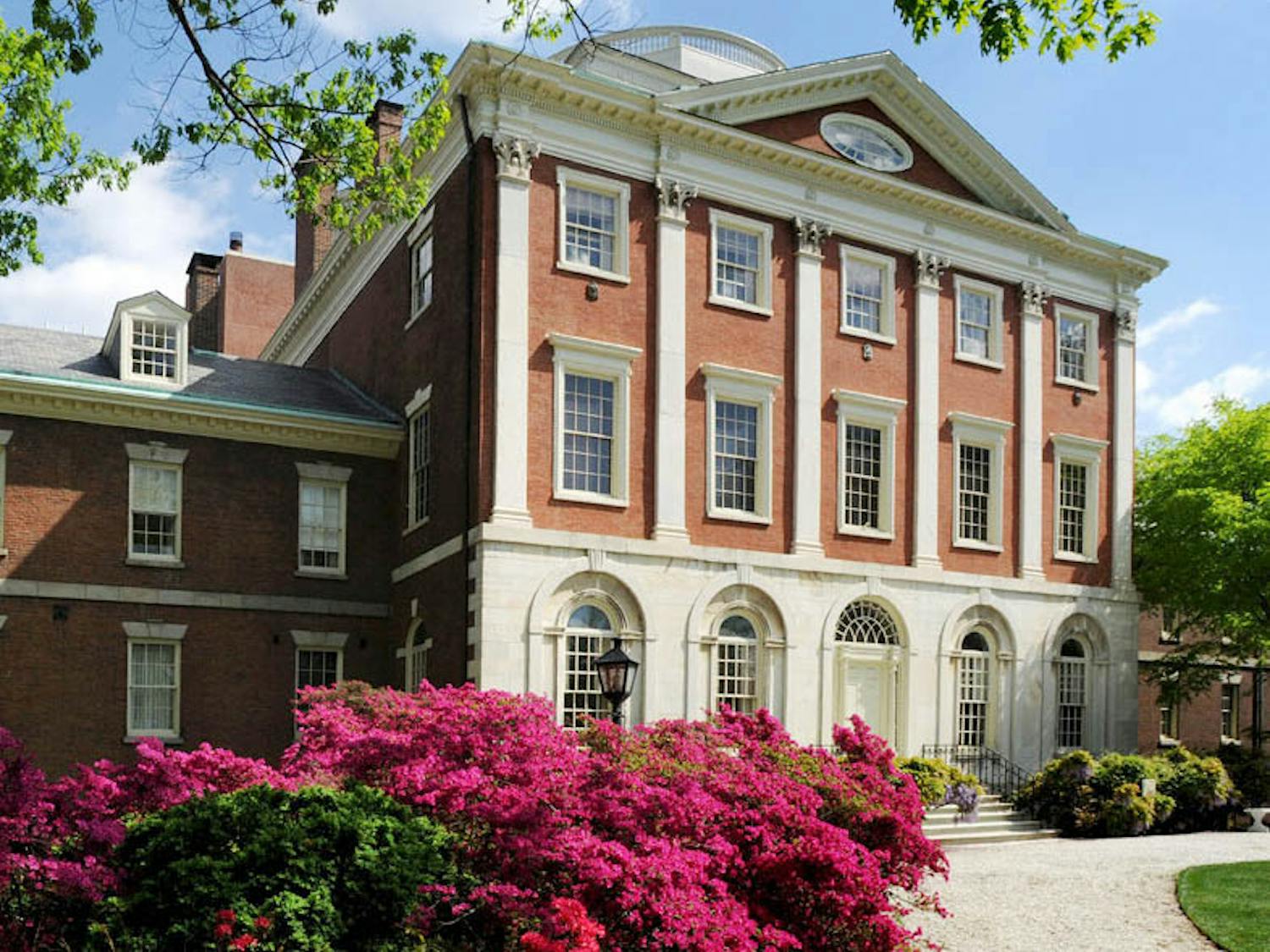When Penn graduate Andy Krieger arrived in India several days after the Dec. 26, tsunami ravaged the country's coast, he was overwhelmed by the smell of death that permeated the rubble of shattered boats and tangled fishing nets strewn over dead bodies.
"I was viewing a massive maritime graveyard," he wrote in his diary on Jan. 4.
Yet only a week and a half later, Krieger found that in one poor fishing village, a celebration of life had begun -- in his own name.
Four hundred villagers from the town of Pudupattinam -- which lost 1200 of its 1300 homes in the disaster -- greeted Krieger with utter joy as he delivered boats in an attempt to help the people of India regain what the sea had swept away.
While other organizations across the world are only staying long enough to drop off bags of food and supplies, Krieger is brainstorming ways to restore the local economy.
After nearly four decades of interest in Indian culture and philosophy, Krieger is helping Indian families regain their livelihood, a process that would have taken three generations without outside aid, he says.
Since 1988, Krieger -- who graduated from the College in 1971 and received a Wharton MBA in 1984 -- has made nearly 30 visits to India.
It was during these trips for reflection and meditation that Krieger began to feel an indebtedness to the country. His spiritual teacher Indira Devi, whom he met during his second visit in 1989, also urged him to give back to India someday, as a way of "balancing things out."
"I always felt that someday I'd have to give back, and that was just the fair thing to do," Krieger says.
Save the Family
Krieger saw the massive amounts of aid pouring into Southeast Asia after the tsunami, but he was not satisfied. He wanted to do more than give relief aid. He wanted to ensure the survival of those affected by the disaster.
As Krieger's company's Senior Vice President for Development and 1967 Penn alumnus Alfred Schreiber says, he sought to give victims a fishhook rather than a fish. Krieger's organization -- International Management Group East Emergency Relief Fund -- began a program called Save the Family to give Indian families the chance sustain themselves permanently with what are called the Life and Business Starter Kits.
Between them, the packages include one 30-foot fiberglass boat, a thatched-roof hut, an outboard motor, a one-kilometer fishing net, cooking utensils, food and supplies for two months, furniture and bedding, clothes and children's books.
Each kit costs $5,550, which Krieger feels is a modest price in a Western context, and is intended to provide for three families. The cost of the kits is paid by donations to the organization.
He points out that with $41,200 -- the cost of today's Penn education -- 22 Indian families could be given permanent livelihood and housing -- which could in turn create a ripple effect in the local economy.
Krieger's son David, a 2003 College graduate who is working with his father to promote the project, says that long-term development is what makes the program unique.
"Once the press dies down, what is going to sustain these communities?" David asks.
The 'logical' thing to do
"It wasn't until I finally sat down and tried to visualize a 40-foot wall of water coming at my kids and imagine them holding onto trees just to try to survive [that] I said, 'Oh my God, I gotta go do something,'"
News of the tsunami reached Krieger while he was vacationing with his family in the Catskills.
"That was really what impelled me to get out of my chair and on a plane," he adds.
Krieger felt that starting his own organization was the "logical" thing to do. If he simply donated to any organization, he says, he wouldn't know where his money was going.
While donations first came directly from Krieger's pocket, many of his friends soon turned to Save the Family for similar reasons after donating to larger charities.
Save the Family, in partnership with international aid organization Hope Worldwide, has already left its mark in Southeast Asia and given away 140 Life Starter Kits.
"For a very modest amount of money, we could put together life packages to ... give [these people] permanent livelihood, permanent housing and a couple months of supplies," Krieger says.
Each boat also bears the name of its donor, so benefactors know exactly what becomes of their contributions, and every penny contributed goes directly to implementing the relief efforts. The organization has seen amazing acts of generosity, from an anonymous $100,000 donation and a $2 gift from a benefactor on welfare.
Starting from scratch
The Save the Family program has "adopted" three villages -- first Pudupattinam and Oyyalikuppamm, and recently Tarangambadi.
The organization has distributed 100 boats between the first two villages and 40 in Tarangambadi, the village that suffered the most devastating losses of the three.
Krieger, horrified upon his arrival by the piles of trash and junk that smothered the coastline for miles, knew that the rubble would be "cathartic" for the villagers.
He hired a construction company to clear out the debris, which had served as a constant reminder of the unimaginable wave.
Krieger has comprehensively adopted these towns, setting up septic systems, health clinics, schools and even sex-ed classes for women.
Life Starter Kits are given generously, but not without rules and contracts set by each village's council.
The hope is that one day everyone in the village will have a boat. But for now, communal sharing is expected. The message is clear -- each gift, each Life Starter Kit, is a blessing, and it must benefit the whole village until everyone gets a gift.
According to Krieger, fishermen are required to use their boat five days a week or they lose it, and they must report their hauls and sales records.
Krieger's concerns about waste removal led him to implement sanitary regulations as well. Villagers are required to put their garbage in provided canisters or they will lose their boats.
Krieger's past involvement in India showed him how to go about business affairs in the country and was critical when he began tsunami relief efforts.
In the summer of 2003, after bringing his daughter to India to volunteer at an orphanage, Krieger partnered with International Management Group to begin IMG Academies Bharata, which aims to train Southeast Asian athletes for the Olympics.
He is still in the process of finding sites for four multimillion-dollar sports academies which will provide world-class sports training to talented athletes.
Around age 10, Krieger became fascinated with Indian philosophy, which instructed him to find his core essence or spirit. This passion that eventually marked his studies at Penn. He majored in philosophy as an undergraduate and received his master's in South Asian studies.
Krieger says that his father used to plot with his tennis coach to try to get the young Krieger to pursue more practical interests.
Though he considered a career in academia, Krieger eventually decided that Indian philosophy should be a personal pursuit rather than a career.
Ultimately, he received his MBA in 1984 and went to work on Wall Street.
Krieger always found time for meditation, which has long been a part of his life, despite his stint on Wall Street and current position as chief executive of NorthBridge Capital Management.
After a "watershed" 1989 visit to India where he met spiritual teacher Indira, Krieger continued travel to India twice a year for two weeks.
After Indira died in 1997, Krieger did not return to Southeast Asia until the trip with his daughter in 2003.
Krieger reflects on the trips where he left markets and trading behind. "It was just a chance to dig inside myself, try to find some balance and try to find some better insights into myself and the world around me."
Turning Outward
Krieger's recent trips to Southeast Asia have been anything but retreats for personal reflection, though he has found inspiration in observing human strength.
"One thing that struck me was the resilience of these people," he says.
"When I first went [to India a week after the tsunami], no one would go near the water. ... Every time the kids would even look at the sea they would start crying."
A week later, Save the Family set its first boat out to sea.This marked the first time since the disaster that anyone in these villages had ventured back into the water.
A state of despair was now a celebration of life -- and of Krieger's work.
"Imagine you go into a place where there are 2,000 people who absolutely totally love you and fully accept you and are glad you are alive in the most astonishing, personal way -- it's a very healing experience," Krieger says.
Krieger says that Save the Family will continue to expand its work in these coastal villages as long as the donations keep coming in.
"The most potent experience was that feeling like with so little you can make such a big difference."








